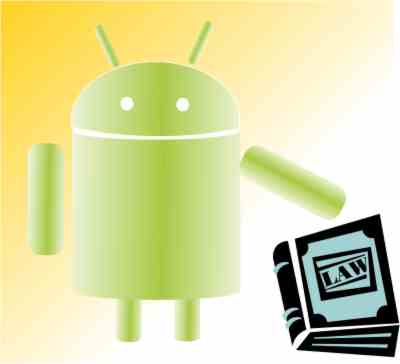| Google Successful With Fair Use Defence |
| Written by Sue Gee | |||
| Friday, 27 May 2016 | |||
|
The jury in the second Oracle versus Google trial reached a unanimous verdict that Google's implementation of 37 Java APIs in its Android operating system was lawful and constituted "fair use".
This verdict will come as a great relief not only to Android developers but to all developers who rely on existing APIs. Had Oracle prevailed and been awarded a large sum in damages it could have led to a spate of similar lawsuits. This second jury trial would never had happened if Judge William Alsup's ruling at the end of the first one - that Oracle's Java API were not copyrightable - had not been overturned on appeal. The Supreme Court refused to reconsider the issue of API copyright, leaving the way open for Oracle to sue Google for infringing its copyright for the use of 37 API's. The new trial was again held in front of the Judge Alsop, who as we revealed had personal experience of writing code and during the original trial, extended his knowledge of programming languages to include Java. The task for the jury was to decide if Google's use of Sun Microsystem's Java APIs, acquired by Oracle after the Android operating system was implemented using them, overstepped the boundary of fair use. Part of the defence was that Sun, which was essentially a hardware company had no objections to Google's use of the Java language and its APIs - the language was intended to be free for all to use - "write one, use everywhere" was and is its motto. The other plank of the defence was that the 11,000 lines copied were declaring functions rather than implementing functions. Commenting on its win a Google spokesperson said: "Today’s verdict that Android makes fair use of Java APIs represents a win for the Android ecosystem, for the Java programming community, and for software developers who rely on open and free programming languages to build innovative consumer products." The EEF (Electronic Frontier Foundation) which had petitioned both the Federal Appeals Court and the Supreme Court for a ruling that APIs are not copyrightable welcomed the outcome of this trial: The Google verdict is an an important validation of the idea that developing interoperable software need not require permission or a license. As Google attorney Robert Van Nest said in his closing arguments, the law expressly endorses fair use—it's a right, not an "excuse," as Oracle attorneys had claimed. On the other hand the EEF is far from satisfied saying: Still, the fair use victory is bittersweet. Judge William Alsup's previous opinion that the API labels in question are not copyrightable was the correct one, based on a reasonable reading of the copyright law in question. The Federal Circuit decision to reverse that opinion was not just wrong but dangerous. While developers of interoperable software can take some comfort in the fact that reimplementation may be fair use, a simpler and fairer solution would simply have been to recognize API labels as a system or method of operation not restricted by copyright. A statement from Oracle's general counsel Dorian Daley signalled that this isn't yet the end of the saga: “Oracle brought this lawsuit to put a stop to Google’s illegal behavior. We believe there are numerous grounds for appeal and we plan to bring this case back to the Federal Circuit on appeal.”
More InformationGoogle wins new case over API fair use
Related ArticlesSchmidt and Schwartz Defend Google's Use Of Java APIs Oracle v Google - Second Trial Starts Today Google Changes Course For Android N Supreme Court Refuses To Reconsider API Copyright Decision White House Advises That APIs ARE Copyrightable Supreme Court Seeks Guidance On API Copyright Issue Computer Scientists Petition Supreme Court Over API Copyright Android Copyright Battle Goes To Supreme Court Judge Rules Oracle's Java APIs Not Copyrightable Oracle v Google Judge Is A Programmer! Oracle v Google - Are Computer Languages Copyrightable?
To be informed about new articles on I Programmer, sign up for our weekly newsletter, subscribe to the RSS feed and follow us on Twitter, Facebook, Google+ or Linkedin.
Comments
or email your comment to: comments@i-programmer.info |
|||
| Last Updated ( Sunday, 16 August 2020 ) |


